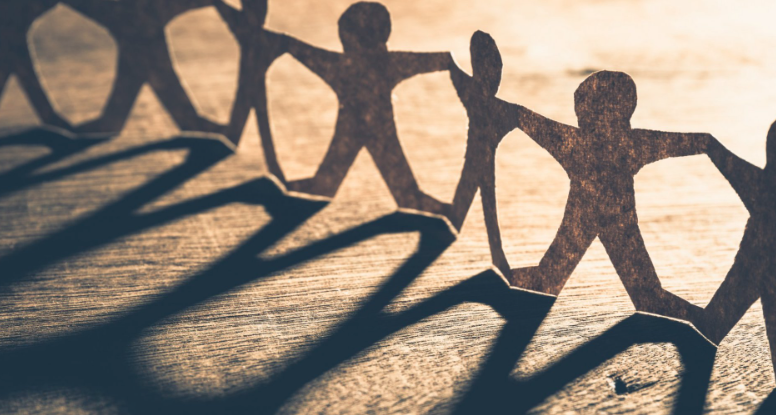Belonging at Work Isn't about Special Treatment. It's About Fairness
Belonging is quickly becoming the third essential piece in the diversity and inclusion conversation. Anita Sands, former COO of wealth management company UBS Wealth Management Americas and frequent writer on workplace equality and diversity, sums up how each piece relates to each other like so: "Diversity is a fact (the numbers are what they are), inclusion is a choice (you decide whether to include someone or not), but belonging is a feeling."
The reason belonging is so powerful is precisely why it can seem daunting to try to influence: it's an emotional response. And emotions are unique to every individual. What makes one person feel one way makes another feel very differently.
For leaders who set out to create not just diverse and inclusive workplaces, but ones where people feel they belong, it can seem that nothing short of getting to know every single person on a deep, personal level will achieve the desired result.
But how does a busy executive find the time to get to know the names of everyone's kids and pets, their hopes and dreams, likes and dislikes, annoyances and motivations?
To those who worry fostering belonging at work requires special treatment on an individual level: The truth is actually the opposite. According to a recent report from leadership development firm BetterUp that studied over 3,000 adults in the U.S., fairness is far more important.
To reach this conclusion, researchers conducted a "ball toss" experiment. In the first iteration of the experiment, three parties threw a ball back and forth, but eventually two participants started tossing the ball only to each other and excluding the third person. In this instance, the excluded person's sense of belonging suffered as well as their performance -- they were 25 percent less productive in follow-up tasks when compared to research subjects who had not been excluded.
In the second iteration, the researchers added a fourth party. This fourth member acted as an ally to the previously excluded member by tossing the ball to them as many times as they did the other two participants. Not notably more or less, but approximately the same amount.
What happened? The fair treatment prevented the negative effects of exclusion -- even though the two original parties were still acting in an exclusionary manner.
Focus on Fairness
The fact that fairness impacts feelings of belonging -- and associated improvements in performance -- would indicate that company leaders can focus on fairness as a way of boosting belonging.
On one hand, this could be seen as welcome news. Fairness -- relatively straightforward -- seems like a much easier goal to accomplish than a nebulous feeling of belonging. "Am I treating everyone fairly?" seems like a much easier and more objective question to answer than "Are my actions making people feel that they belong?"
However, company leaders should be mindful that the status quo for historically marginalized groups has been unfair treatment -- and that often resides in a blind spot for those in privileged groups. Considering this fact, leaders shouldn't necessarily give special treatment to those in underrepresented groups, but they should actively seek out and pay careful attention to their experiences of fairness.
To gauge fairness at your company, reflect on the following questions, or pose them to your team members:
Do the processes on the team benefit some and not others?
Does leadership offer career growth conversations and feedback discussions at relatively the same rate?
Have I made an attempt to get to know certain people on a personal level, but not others? If so, why?
Belonging is a feeling, and at the end of the day no one can (or arguably should) try to make someone feel a certain way. However, if leaders focus on treating everyone fairly, it's more likely that the feeling of belonging will follow. Just know that your definition of "fair" might not be the same as others'.


